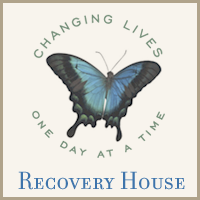Brattleboro Retreat Adult Alcohol Abuse Program/Tyler One

About Brattleboro Retreat Adult Alcohol Abuse Program/Tyler One
The Brattleboro Retreat’s Adult Inpatient Treatment Program provides people ages 18 and older with a broad range of short-term, around-the-clock care for a wide range of acute mental health and addiction problems. Admissions are accepted 24-hours-a-day, seven days a week.
Our adult inpatient mental health and addiction treatment program offers sophisticated, coordinated care provided by an experienced team that includes board-certified psychiatrists, psychiatric nurses, licensed social workers, and highly trained mental health workers. We work with you to create a customized treatment plan designed to ensure you get the most out of your care.
We provide skilled assessment, rapid intervention, and acute crisis stabilization for adults who are experiencing severe episodes of:
Depression
Bipolar Disorders
Co-occurring Disorders (Dual Diagnosis)
Withdrawal from alcohol, prescription drugs, and other potentially dangerous or addictive substances
Schizophrenia and other thought disorders
An average inpatient stay at the Retreat lasts from 5 to 14 days. When you’re ready to leave we offer a variety of high quality programs and services designed to help you build on the gains you made in the hospital and get stronger and more comfortable in your recovery. For example:
The Birches Treatment Center is the Retreat’s partial hospital (PHP) and intensive outpatient program (IOP) for adults.
Starting Now is our intensive outpatient treatment program specifically for adults who are dealing with alcohol and addiction to other drugs.
The Anna Marsh Clinic provides traditional outpatient therapy with offices right here on campus.
| Levels of Care | Detox Service Setting | Programs | Payment Options | |
|---|---|---|---|---|
|
Inpatient and residential programs provide round-the-clock medical and emotional support as you live at the treatment facility. This level of care may be recommended if you have severe addictions or mental health conditions since it removes outside distractions and allows you to focus solely on therapy. |
In outpatient therapy, you’ll attend therapy sessions several times each week while living at home. This is ideal if you have a strong support system and a lower risk of relapse. Outpatient treatment offers flexibility to maintain work, school or family obligations. |
Intensive Outpatient
|
Partial hospitalization programs provide comprehensive treatment in a structured setting during the day but allow you to return home at night. These programs offer a balance of inpatient and outpatient rehab and provide intensive support without full time residency. |
|
|
Inpatient detox occurs in a dedicated treatment facility. You’ll live there around the clock and receive intensive medical support and supervision to help manage your withdrawal symptoms. It is suitable for individuals with moderate to severe addictions as it ensures a stable detox environment. |
||||
|
Adult programs address the substance use and life challenges specific to adults. Therapists can deliver sessions in individual, group and family settings. Services often include job support and life skills training in a structured environment. |
Teenage programs are tailored to meet the unique developmental needs of adolescents. Programs often involve family therapy, school support and age appropriate counseling. Some of the topics you may discuss include life skills and healthy coping strategies. |
LGBTQ friendly programs create an inclusive and affirming space for recovery. Treatment is sensitive to issues like discrimination and stigma. You’ll receive support and therapy that respects and acknowledges your unique experiences. |
Alcohol detox programs offer medical support to help individuals withdraw safely from alcohol. Your care team may use medications to ease your symptoms and provide medical monitoring to address complications. |
Drug detox programs support individuals who are withdrawing from addictive substances like cocaine and heroin. Medical support helps you manage symptoms in a controlled and safe environment so you can achieve initial sobriety. |
|
Self Pay
|
Private Insurance
|
Payment Assistance
|
Levels of Care
Inpatient and residential programs provide round-the-clock medical and emotional support as you live at the treatment facility. This level of care may be recommended if you have severe addictions or mental health conditions since it removes outside distractions and allows you to focus solely on therapy.
In outpatient therapy, you’ll attend therapy sessions several times each week while living at home. This is ideal if you have a strong support system and a lower risk of relapse. Outpatient treatment offers flexibility to maintain work, school or family obligations.
Partial hospitalization programs provide comprehensive treatment in a structured setting during the day but allow you to return home at night. These programs offer a balance of inpatient and outpatient rehab and provide intensive support without full time residency.
Detox Service Setting
Inpatient detox occurs in a dedicated treatment facility. You’ll live there around the clock and receive intensive medical support and supervision to help manage your withdrawal symptoms. It is suitable for individuals with moderate to severe addictions as it ensures a stable detox environment.
Programs
Adult programs address the substance use and life challenges specific to adults. Therapists can deliver sessions in individual, group and family settings. Services often include job support and life skills training in a structured environment.
Teenage programs are tailored to meet the unique developmental needs of adolescents. Programs often involve family therapy, school support and age appropriate counseling. Some of the topics you may discuss include life skills and healthy coping strategies.
LGBTQ friendly programs create an inclusive and affirming space for recovery. Treatment is sensitive to issues like discrimination and stigma. You’ll receive support and therapy that respects and acknowledges your unique experiences.
Alcohol detox programs offer medical support to help individuals withdraw safely from alcohol. Your care team may use medications to ease your symptoms and provide medical monitoring to address complications.
Drug detox programs support individuals who are withdrawing from addictive substances like cocaine and heroin. Medical support helps you manage symptoms in a controlled and safe environment so you can achieve initial sobriety.




